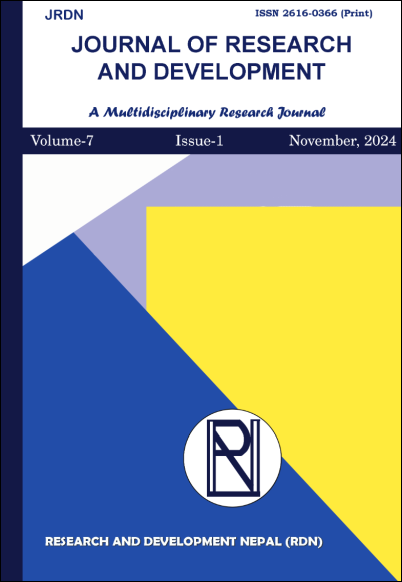Practices of Curriculum Differentiation in Community Schools of Nepal
DOI:
https://doi.org/10.3126/jrdn.v7i01.72500Keywords:
constructivism, curriculum differentiation practice, MKO, STEAM, ZPDAbstract
The curriculum differentiation practice implies a separate type of design used to secure social justice and inclusion in the school. It has different dimensions i.e. content, methods and strategies, environment, output, and teacher. Nepalese community schools have some practice of integrated curriculum approach except the well-defined practice of differentiated curriculum. This study explores the status of the usage of differentiated practices of the curriculum in the deaf and community secondary schools along with the challenges and the coping strategies. Qualitative design and case study approach entail in this study in which the deaf and community secondary schools are selected purposively and similar numbers of teachers. The respondents along with the observation checklist are the information generation tools. Thematic analysis and the theoretical backup support to justify the information and its validation. There are no well-defined and mentioned differentiated curriculum practices in community schools except the integrated approach. Lacking a defined practice and the proper training for the teachers are some challenges of its practices and to cope with the challenges the well-defined design of curriculum differentiation should be stated by the authorized body along with the proper training for the sign language teachers and the normal language teachers. If there would be adding technology to the defined practice of differentiation, it would be easier to ensure social justice, inclusion, and 21st-century skills in the learners.




